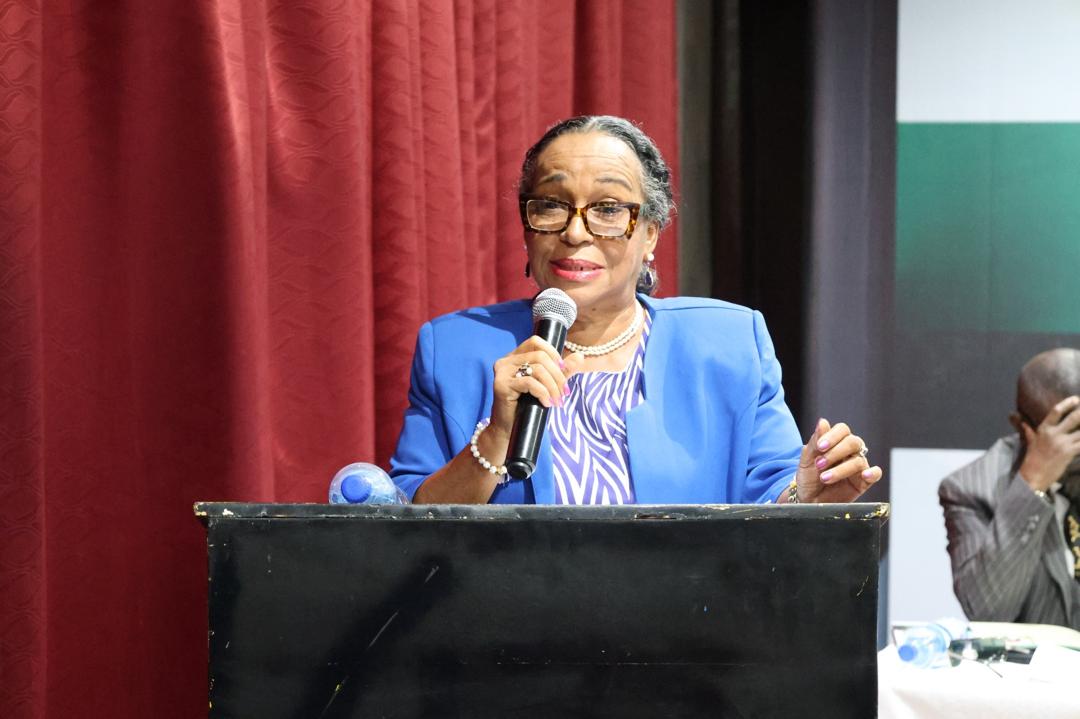Justice Folashade Bankole-Oki (rtd) has called for sweeping reforms in Nigeria’s judiciary, warning that public confidence in the courts is rapidly declining.
She further urged stakeholders to embrace technology, international standards, and robust public and media engagement to restore credibility in the justice system.
Delivering the keynote address at the National Association of Judicial Correspondents (NAJUC) Annual Lecture in Lagos, Justice Bankole-Oki emphasised that the legal system must adapt to modern realities to remain relevant.
The event was themed: “Strengthening the Administration of Justice Through Technology, International Best Practices, Media, and Public Feedback.”
“There is an urgent need to strengthen the administration of justice in Nigeria. Public trust has waned—and rightly so.
“Restoring that trust is a collective responsibility involving the judiciary, legal professionals, government, and especially the media,” she said.
She highlighted the essential role of judicial correspondents in shaping public perception, stressing the need for accurate, balanced, and professional reporting.
Misleading headlines and sensationalism, she warned, could further damage public faith in the courts.
Justice Bankole-Oki also cautioned against proposed regulations such as mandatory blogger registration, arguing that such measures may threaten press freedom.
“We need responsible reporting that informs, not inflames,” she added.
Pointing to successful innovations in the Lagos State Judiciary, she advocated broader adoption of virtual hearings, online dispute resolution platforms, paperless trials, e-filing systems, and automated transcription.
She called on the National Judicial Council (NJC) and state judicial commissions to lead the push for digital transformation, including secure digital evidence storage.
On artificial intelligence, she acknowledged its usefulness in legal research and case management but warned against excessive dependence, calling instead for a balanced integration.
She also urged journalists to exercise caution when reporting on whistleblower disclosures, emphasising the need for thorough verification and protective measures to prevent misuse.
“Technology, media, international benchmarks, and public feedback are no longer optional, they are essential pillars for building an efficient, transparent justice system,” she stated.
EFCC Chairman, Ola Olukoyede, who also spoke at the event, praised the media’s role in the anti-corruption fight and encouraged continued resilience and unity.
He was later presented with an Award of Excellence for his commitment to accountability.
Justice John Terhemba Tsoho, Chief Judge of the Federal High Court, represented by Justice Ambrose Lewis-Allagoa, called for stronger ties between the judiciary and the media to enhance accurate court reporting.
Event chairman, Justice Taiwo Taiwo, lauded recent judicial reforms and welcomed transparency initiatives like the publication of nominees for public scrutiny.
NAJUC Chairman Olugbenga Soyele described the theme as timely, stressing the need for continued dialogue to build a justice system worthy of public trust.
Copyright Notice:
All rights reserved. The content on this website, including text and other digital materials, may not be reproduced, published, broadcast, rewritten, or redistributed in whole or in part without the express written consent of THE NEWS ACCELERATOR NETWORK.
For advertising inquiries, news coverage, or press releases, please contact us at thenewsacceleratornetwork@gmail.com.


Post a Comment